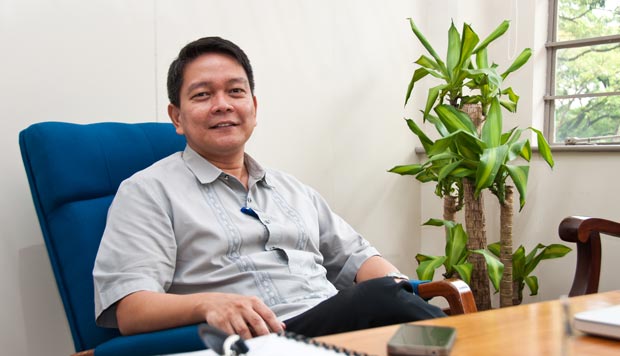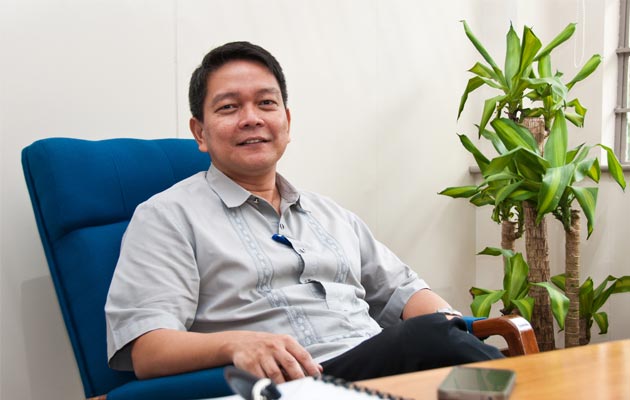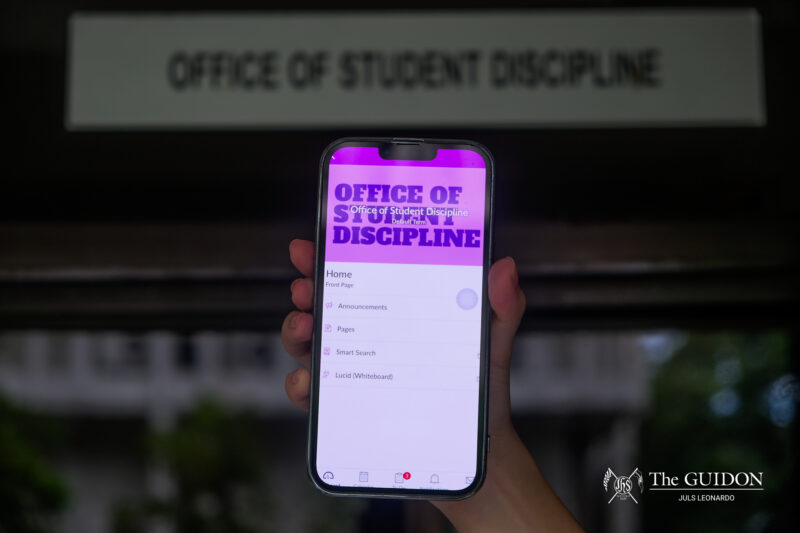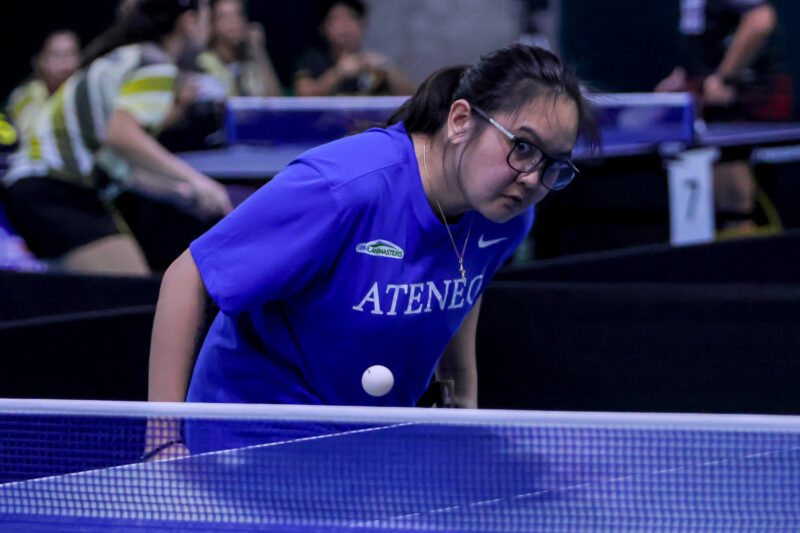
Bright beginnings. New university president Fr. Jett Villarin enters his position with both a fresh perspective and the assurance to the community that any future changes will be carefully made. Photo By Migi C. Soriano
A NEW chapter in the Ateneo de Manila’s history is about to unfold.
A year after being chosen as the next man to lead the school, Fr. Jose Ramon “Jett” Villarin, SJ, officially took the office of university president last June 1.
He succeeded Fr. Bienvenido Nebres, SJ, who was originally supposed to step down after 18 years of service last April 1. In a memo released last May 12, however, Nebres said that his term was extended to May 31 in order to allow them both to manage school matters for their respective universities before the transition.
For Villarin, leading the Ateneo as the new president will be a homecoming of sorts. He obtained his degree in physics at the Ateneo de Manila in 1980, graduating magna cum laude and class valedictorian. He has also been a campus minister, faculty member of the Physics Department and a member of the Board of Trustees of the university.
Not in a rush
While he is not a stranger to the Loyola campus, Villarin is taking his time to re-familiarize himself with the Ateneo.
“It will take a while… I have been a trustee so I know what Fr. Ben has been doing the last few years here. But management-wise, the nitty-gritty, the protocols [and] systems—that, I’ll need to learn,” he says.
Villarin is careful to reveal his tentative plans for the school. A scientist by training—he headed the Climate Studies Divison of the Manila Observatory and holds a doctorate in Atmospheric Physics from the Georgia Institute of Technology—he prefers to conduct research first before putting together a plan of action.
“I’m seeing some things [that I’d like to focus on] already but I’m careful. It’s still early days. If you’re going to ask me my plans, I’ll say ‘I can tell you what I want to do but I’d rather first discern and see if there is some basis for what I’m seeing,’” he says.
“Some people construe that as slowness, indecisiveness. I beg to disagree. Before I make my moves, I first try to explore angles and try to figure out the end game.”
Connected, courageous community
One of Villarin’s plans for the university is to connect different Loyola Schools departments and other affiliated units. “There’s a lot of expertise, a lot of competence [in the departments], but they’re not connected… I’d try to connect the various units,” he says.
He adds that the only way people will realize the need for interconnectivity is when they need to tackle problems that are not just discipline-based.
“Once you start dealing with problems that are intractable, very hard to solve, you need to connect,” he says.
While this is already happening in the Loyola Schools, Villarin thinks it can be further improved. He added that he would also want to work closely with other Ateneo units, such as the Ateneo Graduate School of Business and the Ateneo Law School.
This interconnectivity will also figure in Villarin’s plan to position Ateneo within the framework of national development. In this regard, the new president wants Ateneo to be brave when it comes to politics.
“Ateneo cannot be unpolitical,” Villarin says. “First of all, [the Ateneo] has power. What the Ateneo says or does not say will affect this country… We should speak up.”
On plans for students, faculty
With the recent release of the 2011 World University Rankings, in which Ateneo slipped to 65th place from 58th, Villarin also places student and faculty formation and the promotion of research work as one of his priorities.
He emphasizes, however, that formation does not only mean academic competence.
“When you are in the Ateneo, you’re not just a teacher… You’re also a formator,” he says. “You help your students develop their character, their leadership. And that’s not just learned by telling them or teaching them things in the books.”
“That means some work has to be done on spirituality, social formation—not just people skills, but being exposed to a different world: the world of the poor.”
Villarin also plans to encourage research that is “not just for the sake of research.”
“Because we are a Jesuit institution, I’d like our research to have a bearing on social problems,” he says. While he explains that there is room for the purely academic concerns, he states: “[I will] try to move the university to doing that kind of [research] that will make a difference.”
Old friends, new people
Villarin’s new assignment meant that he had to leave his Xavier University community and meet the Loyola-based one.
Ernesto Neri, former president of Xavier University’s central student government, shares fond memories of Villarin’s term in Mindanao.
“Father Jett is a charismatic leader. He is not only backed by his stellar credentials but more so [by] his unique relationship with the students,” he shares. “He is a Rock Star President, so to speak.”
He adds that Villarin steered Xavier University towards greater social outreach, faculty formation, research and administrative reform. Under his watch, more teachers obtained postgraduate degrees, the College of Computer Science was established, the student government gained autonomy, and three new buildings were constructed on campus.
In Loyola, though, Villarin will be working with different people, some of whom have been in the Ateneo longer than he has.
School of Humanities Dean Ma. Luz Vilches thinks that Villarin is “someone who will build on what Fr. Ben [Nebres] had done.”
“Fr. Villarin will bring in other gifts to the presidency—his sense of humor, definitely,” she says.
Meanwhile, Sanggunian President Drew Copuyoc expects Villarin to get in touch with the students.
“I expect him to connect to the student body in a very personal manner. My friends in Xavier University often speak proudly about how close they are to Fr. Villarin, and how this relationship inspires them to be more excellent students,” he says.
Great challenges
Aside from working with new people, though, Villarin will also face new challenges.
Vilches cites the strengthening of Ateneo’s ties with other Asian universities, environmental concerns and the proper responses to these, the development of research, the acquisition of resources to help with projects, and support for the arts and the humanities as examples.
Copuyoc, on the other hand, hopes that Fr. Villarin will push for more service-learning programs in the Loyola Schools. Service-learning is the integration of course theory with practical application in the outside world.
For his part, School of Science and Engineering Dean Fabian Dayrit believes in letting Villarin decide himself.
“I think that we should give him the opportunity to craft his own direction, before we propose our own suggestions and priorities,” he says.
“Certainly there are many challenges that we need to address, and we are looking forward to meeting these challenges under his leadership.”







